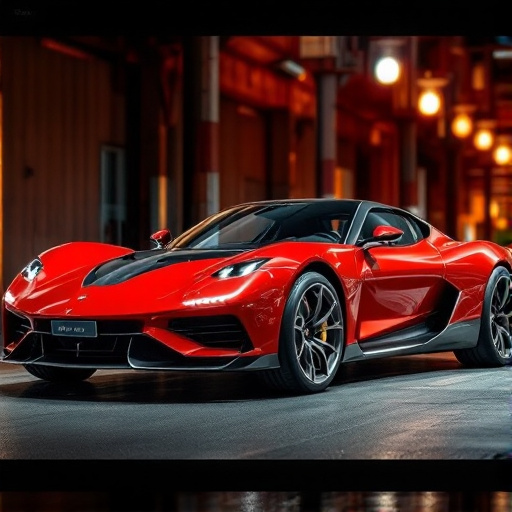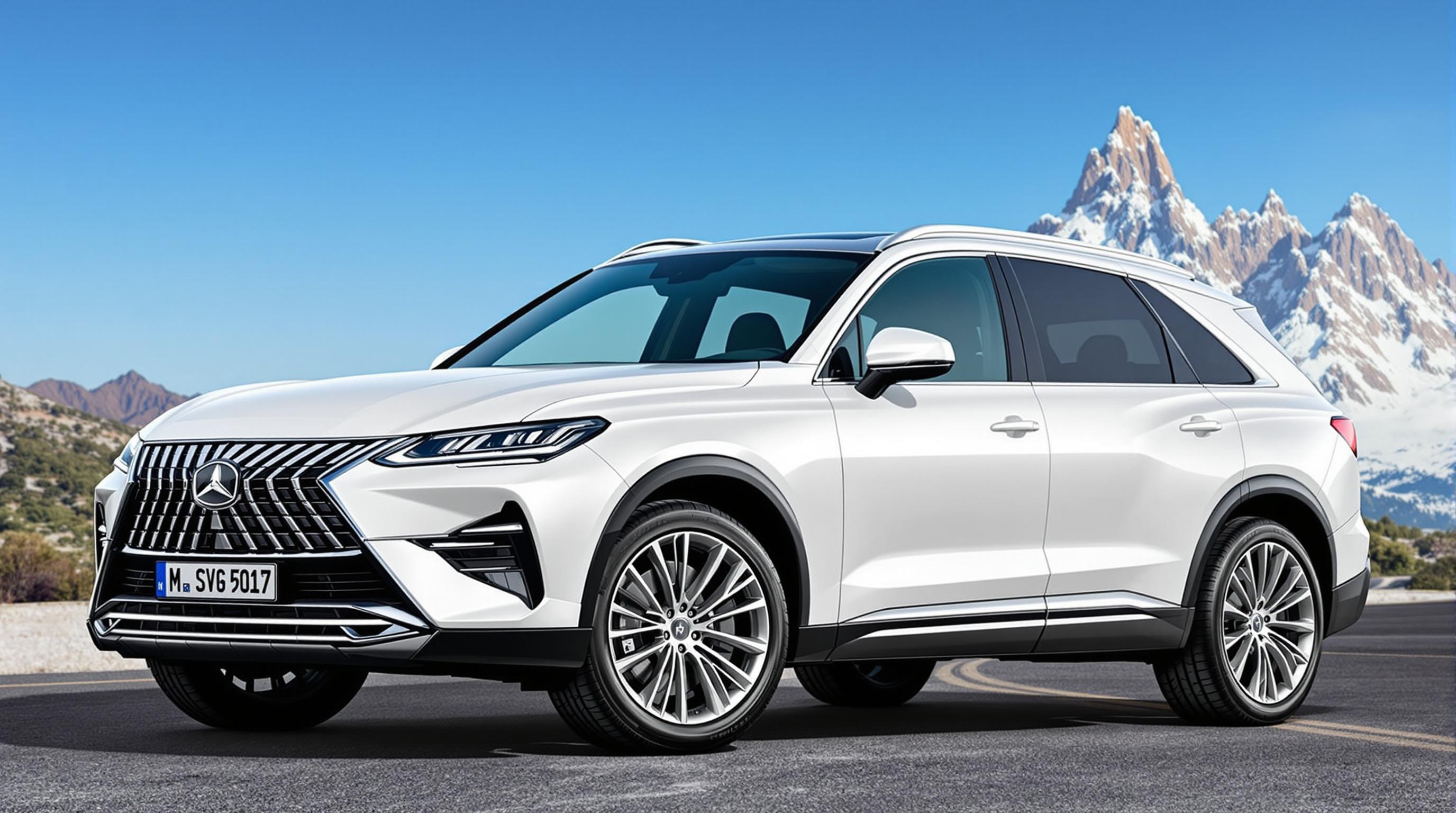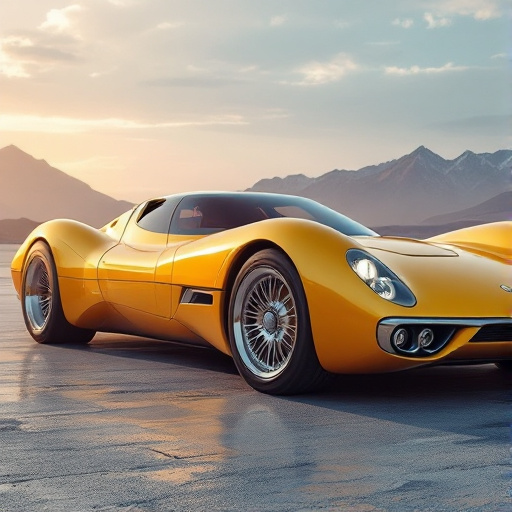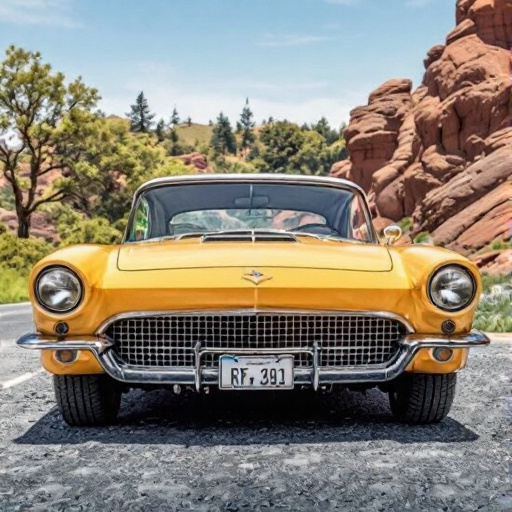Related Articles
- Charged Up! How Electric Vehicles are Reshaping Urban Wildlife Habitats and Biodiversity
- Navigating the Used Car Market: Uncovering the Secrets of 'As-Is' Sales for Savvy Buyers
- The Rise of Electric Car Pop-up Shops: A New Frontier for Urban Retail Experiences
- The Forgotten Art of DIY Car Maintenance: Rediscovering Skills in a Tech-Driven World
- Electric vs. Vintage: The Battle for Enthusiasts' Hearts in the Age of Latest Car Models
- The Rise of the 'Car Review Influencer': How Social Media is Shaping Auto Buying Decisions
Electric vs. Vintage: The Battle for Enthusiasts' Hearts in the Age of Latest Car Models
Electric vs. Vintage: The Battle for Enthusiasts' Hearts in the Age of Latest Car Models
The automotive landscape is witnessing a captivating tug-of-war between electric cars' innovative prowess and the nostalgic charm of vintage vehicles. Enthusiasts spanning across generations are fervently debating which category deserves their heart in this electrifying age of advanced car models.
The Electrifying Rise of Electric Vehicles
In the last decade, electric vehicles (EVs) have surged onto the scene, boasting a projected 26% annual growth rate, making them the fastest-growing segment of the automotive market (Statista, 2023). With substantial advancements in battery technology and charging infrastructure, these vehicles offer not only environmental benefits but also ferocious acceleration and cutting-edge technology that capture the imagination of today's drivers.
The Smart and Sustainable Choice
Imagine gliding silently through the streets, not just enjoying the ride but doing your part to save the planet. In an age where climate change is a pressing concern, many consumers are drawn to the sustainable allure of EVs. According to the International Energy Agency, global electric car sales accounted for 8.6% of total car sales in 2022, a figure that is expected to grow as wider adoption takes hold.
Vintage Vehicles: Capturing Timeless Charm
On the flip side, vintage vehicles evoke a different realm—one steeped in history and character. Owning a classic muscle car, like a 1969 Ford Mustang, is more than about transportation; it’s about embracing a heritage that many find irreplaceable. The roar of a V8 engine, the smell of aged leather, and the intricate craftsmanship are characteristics that modern cars struggle to replicate.
More Than Just a Car: A Lifestyle
For true enthusiasts, vintage cars represent a lifestyle. According to a survey conducted by the Classic Car Club of America, nearly 85% of vintage car owners stated that owning classic cars is a passion and hobby. It's not solely about driving; it's about the restoration, the community, and reliving the golden era of automotive design and performance.
Case Study: The Tesla Model S vs. the Classic Chevrolet Corvette
Let’s take a moment to compare two iconic vehicles: the Tesla Model S, a beacon of modern technology, and the classic Chevrolet Corvette, a symbol of American muscle. The Tesla Model S can reach 0-60 mph in just 2.4 seconds, thanks to its electric powertrain. In contrast, a 1963 Corvette with a V8 engine boasts impressive stats for its time, often achieved around 7 seconds. One is built for the future, while the other captures the rip-roaring spirit of the 60s.
This stark contrast in speed is indicative of the overarching technological advancements in the automotive world. However, many argue that speed alone doesn’t define a vehicle’s worth—you can’t drive a Tesla to a classic car show and draw attention with its futuristic design in the same way you would in a cherry-red ‘69 Corvette.
A Battleground of Emotions and Experiences
At the heart of the electric vs. vintage debate is an emotional struggle. It's like a tug-of-war between two parts of our identity: the conscious, forward-thinking eco-warrior and the sentimental, classic car aficionado. It's not just about specs and stats; it's about the stories we share and the experiences we cherish.
Driving Experience: The Joy of the Ride
Here’s a stark truth: driving a vintage car is about the physical connection with the vehicle—and that chrome steering wheel, the click of a manual transmission, and the light rumble of a classic engine can’t be replicated by an EV. In a survey by ClassicCars.com, 78% of respondents indicated that they prefer the traditional manual driving experience over the more automated systems found in modern cars, including electric models.
On the other hand, the seamless experience of an electric vehicle offers a starkly different thrill. One can argue that the instantaneous torque, enhanced safety features, and smart tech that come with a new EV provide a similar joy, albeit through a modern lens. The debate boils down to what kind of driving experience you value most, and that can vary dramatically from person to person.
Ownership Costs and Investment Value
Let’s not forget the financial aspect. While EVs often entice new commuters with lower running costs and government incentives, vintage cars can be a collector's dream. A 1967 Ford Mustang that was originally priced at $2,500 is now valued at upwards of $50,000 depending on its condition (Hagerty, 2023). Vintage cars can appreciate over time, offering both enjoyment and potential financial gains for owners.
Environmental Impact: A Compelling Argument
When weighing these two lifestyles, environmental considerations come into play. EVs eliminate tailpipe emissions and contribute to cleaner air, thus having a noteworthy impact on urban environments. It’s estimated that for every electric vehicle replacing a gas guzzler, the reduction in carbon emissions could be as much as 50% (Environmental Protection Agency, 2023).
The Emotional Cost of Electric Vehicles
Yet, in a humorous twist, imagine a true-blue vintage car enthusiast hearing about a neighbor’s new electric ride, with its app integration and ongoing internet updates. Seeing this neighbor gleefully plug in their car after a long day at work could ignite an amusing exchange: “So, how many miles does yours go in a single charge? Mine has heart and character in every mile!”
The Role of Car Shows and Communities
As communities evolve, so do car shows and groups that celebrate both genres. One of the most popular events is the annual Pebble Beach Concours d'Elegance, which showcases classic cars, while events like the Electrify Expo cater solely to EV enthusiasts. These spaces offer a sense of belonging—a shared love for automobiles, whether for their heritage or their technology.
Nostalgia vs. Innovation in Cultural Context
The emotional aspect of cars extends into our culture. Look at films like "Gone in 60 Seconds," where classic cars became iconic, versus modern movies that flaunt cutting-edge vehicles. Each serves as a cultural touchstone—a mirror reflecting our changing values and tastes across generations.
What the Future Holds
The automotive industry is evolving at breakneck speed, and the clamor echoes on. Predictions point to electric cars becoming predominant by 2030. However, vintage cars will continue to hold a special place in the hearts of many. Consider this: as technology advances, the appreciation for traditional craftsmanship and design may intensify. Could we see a resurgence in the popularity of vintage restoration alongside the rise of electric vehicles?
A Thought to Consider
Ultimately, this battle between electric and vintage cars isn’t a conflict but rather a coexistence of ideals. Whether you're behind the wheel of a sleek Tesla or tearing down the road in a classic Plymouth Barracuda, both ends of the spectrum provoke passion. The next time you find yourself at a car show, don’t be surprised if an electric car maker steels its way into the heart of a vintage enthusiast or vice-versa. It’s a rich tapestry they create together in the realm of automotive fandom.
Conclusion
As the automotive industry continues to evolve, the battle between electric and vintage cars rumbles on as a drumroll for something greater—an eventual blending of both worlds. No one model can capture all our desires, but both categories are likely to thrive. So, next time you meet someone who’s deeply passionate about their ride, whether it’s vintage or electric, perhaps just as importantly, give them a nod of respect. After all, in this modern world, we're all just trying to find our place in the driver’s seat.




